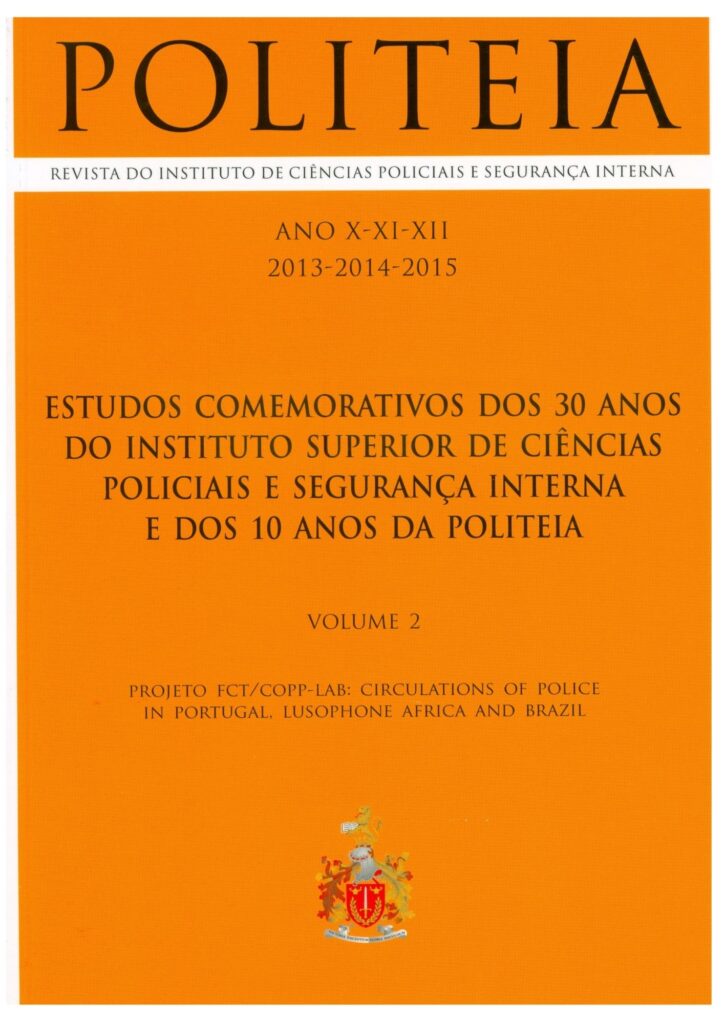Polícias no Brasil: Entre Passado, Presente e Futuro
Key Words
O presente trabalho apresenta alguns aspectos sobre o sistema policial brasileiro e traz algumas notas sobre a cooperação policial, chegando a lançar algumas breves ideias sobre uma reforma policial e sis tema policial brasileiro ajustados ao estado democrático de direito. Para contextualizar o estágio atual do sistema policial, apresentamos brevíssimo cenário da violência no Brasil, que aponta para níveis altos de mortes violentas e de corrupção, os quais apontam para um déficit de Justiça e paz na sociedade brasileira.O sistema policial brasileiro possui peculiaridades em virtude de suas características geográfica, histórica e social, chegando a desenvolver um sistema policial com atributos pluralista e moderadamente centralizado, propício à discussão sobre a qualidade da democracia devido à intensidade da intervenção do poder político, ou quiçá de interação, com a força policial. Como a reforma policial tem sido apresentada continuamente na pauta legislativa e acadêmica, foram descritas algumas tentativas de reformas sistêmicas nas últimas décadas, mas sem haver consenso sobre a amplitude e a direção destas mudanças. Como perspectiva para o futuro no enfrentamento da criminalidade contemporânea, apontamos a cooperação policial operacional e formativa, como medidas promissoras. Também, discorremos brevemente sobre a estrutura de cooperação policial desenvolvida pela Polícia Federal, a seguir o marco da diplomacia policial, tanto no campo operacional quanto no campo da capacitação. Concluímos nossas reflexões com os pressupostos para uma polícia capaz de proteger e defender o regime democrático e os direitos humanos, inspirados em David H. Bayley.
This paper presents some aspects of the Brazilian police system and has some notes on police cooperation, coming to throw some brief ideas about police reform and Brazilian police system adjusted to the democratic rule of law. To contextualize the current stage of the police system, we present briefest scene of violence in Brazil, which points to high levels of violent deaths and corruption, which point to a deficit of justice and peace in Brazilian society. The Brazilian police system has peculiarities due to its geographical, historical and social characteristics, coming to develop a pluralistic and moderately centralized police system, conductive to the discussion about the quality of democracy due to the intensity of political power intervention, or perhaps of interaction with the police force. As police reform has been continuously presented in the legislative and academic staff, they were described some attempts to systemic reforms in recent decades, but with no consensus on the magnitude and direction of these changes. As a perspective for the future in the face of contemporary crime, we point out the operational and training police cooperation, as promising measures. Also, we discus briefly about police cooperation structure developed by the Federal Police, then the police diplomacy structure, both in the operational field and in the training field. We conclude our reflections with the requirements for a police force able to protect and defend democracy and human rights, inspired in David H. Bayley.
Versão original
Versão original
Outros artigos nesta edição
-
Editorial
Manuel Monteiro Guedes Valente
-
Modelos Constitucionais de Polícia e Cooperação na Segurança Interna
Manuel Monteiro Guedes Valente
-
Para lá dos códigos. O papel do Estado e a heterogeneidade do pluralismo jurídico em Moçambique
Sara Araújo
-
Cooperação Internacional para a Formação de Polícias: um caso em Portugal
Susana Durão and Joana Oliveira
-
Efeitos Possíveis da Cooperação Policial. Oficiais entre Portugal e África
Susana Durão and Daniel Seabra Lopes
-
Renovações da Polícia em Angola: cooperação e formação internacional
Cristina Udelsmann Rodrigues
-
Cruzamentos em retorno: Polícias em Lisboa, Praia e Brasília
Joana Oliveira
-
O Modelo de Policiamento Comunitário nos Programas de Educação Policial: uma breve Revisão da Literatura Especializada sobre o Assunto
Paula Poncioni
-
Desafios e Avanços da Política de Formação Especializada de Profissionais de Segurança Pública no Brasil: Reflexões sobre a RENAESP
Ivone Freire Costa, Íris Gomes dos Santos and Anderson Souza da Silva
-
Polícias no Brasil: Entre Passado, Presente e Futuro
Célio Jacinto Santos
-
Diplomacia Policial
Guilherme Cunha Werner
-
Ideias de Chegada e Pontos de Partida. Diplomacia Policial: Formação e saberes
Manuel Monteiro Guedes Valente




